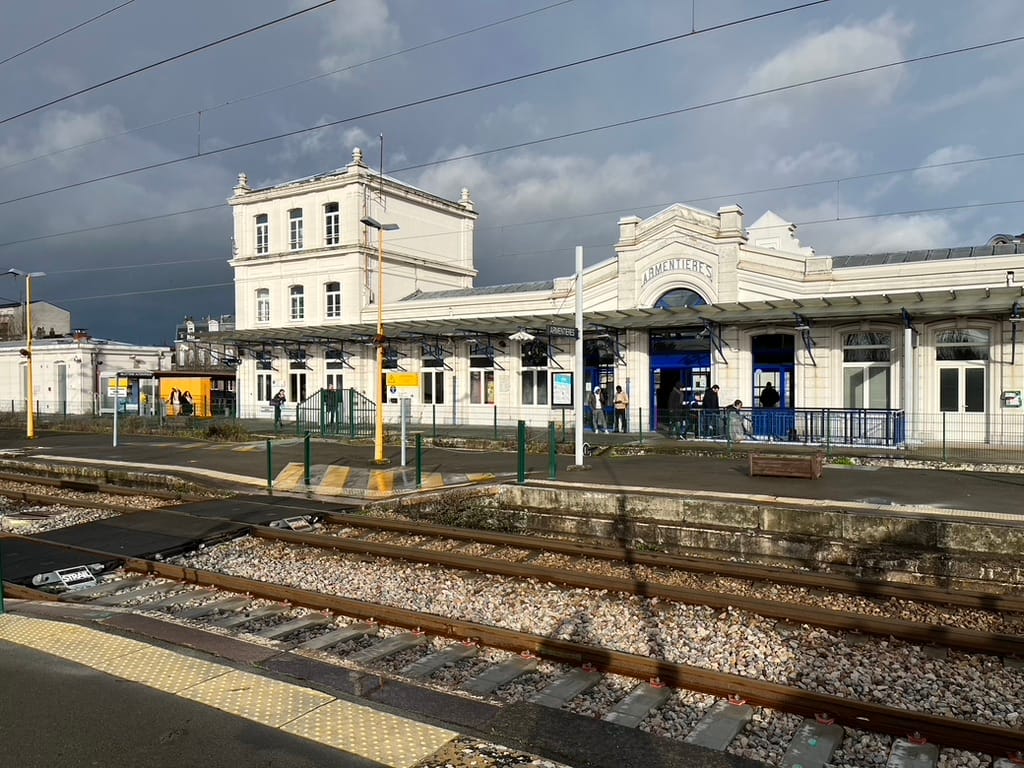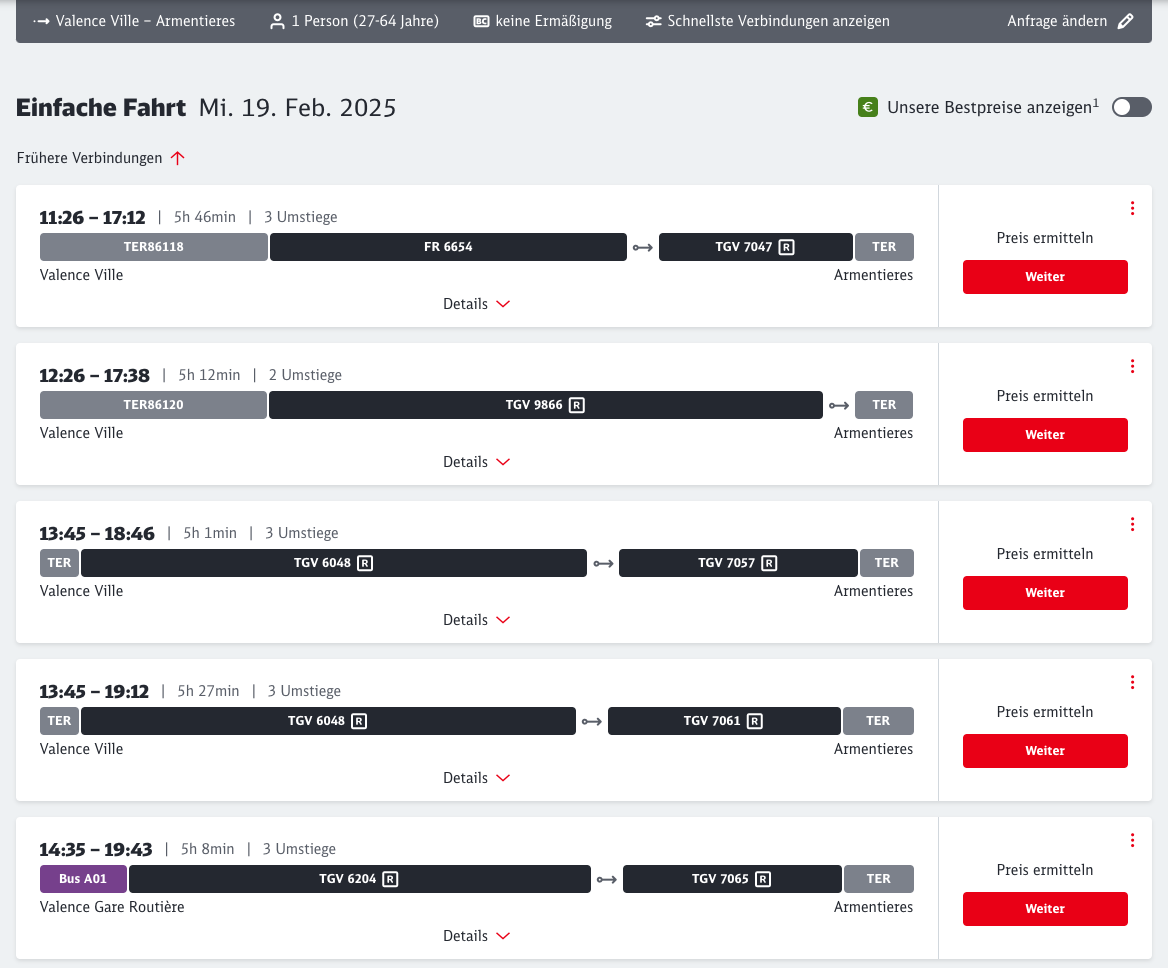Solving the Valence-Armentières Problem - the gold standard for railway trip planning and ticket sales

Geopolitics had the Schleswig Holstein Question. Machine intelligence has the Turing Test.
Jumble those up, throw in a little extra European Union complexity, and I am proud to present you the railway equivalent: the Valence-Armentières Problem.
At one level the theoretical solution to the problem is simple: calculate all the passenger railway routes from Valence to Armentières, and price and sell all of them, and offer a customer their preferred combination of speed and price.
But the practical solution is anything but simple, and at the time of writing there is no single tool available that offers a complete solution to the problem.
The heart of the problem is the (absence of) a split between route planning and ticket sales in European rail.
Deutsche Bahn (bahn.de) can give me all the viable routes from Valence to Armentières, but cannot give me a price and sell me a ticket for the entire route for all options:

And any sites that can sell me tickets - Trainline, 1.2.Train, SNCF Connect* - do not show all of the connections Deutsche Bahn lists, and only show a far smaller number of connections they can sell.
In other words, Deutsche Bahn correctly solves the routing part of the problem only, and Trainline et al partially and inadequately solve the routing part of problem and partially and inadequately solve the sales part of problem.
But then, why Valence and Armentières?
It is not by chance these towns were chosen. I needed a rail route that respected these criteria:
- A trip that would in some cases needs 2 changes or fewer, and in some cases 3 or more - with different viable routes to make the trip
- A mix of fixed fares on local trains, and yield managed fares on long distance ones
- A transfer across a major city, with time correctly calculated for this transfer between terminals
- A trip of a length plenty of people would take by train, where rail is competitive with other modes
- Part of the route with some operator other than a state incumbent
- Some part of the trip where a short non-rail leg would help as a passenger, but all rail options are possible too
And so Valence-Armentières fits the bill. Valence has a station in the city (Valence Ville) and a TGV station outside town (Valence TGV Rhône-Alpes Sud) that connected by both bus and TER fixed fare train to the station in the city. A good planner needs to know the distances between these stations in Valence, and that they are in the same city. High speed trains from Lyon to Paris - part of the viable route at some times of day - are operated by Trenitalia (note the train FR 6654 in the screenshot above) that is competing with the incumbent SNCF. The trip time of between 5 and 6 hours for the c. 750km train means rail is time competitive with driving, and distance to airports means flights are also not competitive for the route. Routes both with and without a transfer across Paris are possible. And some routes have 2 changes, and some 3. The final part of the trip routes you through Lille, where a good routing tool can tell you to walk from Lille Europe to Lille Flandres station, before a TER local train brings you to Armentières.
So then, railway companies, platform owners and tech entrepreneurs: can your tool solve the Valence-Armentières Problem?
Want more background about the issues implicit in the Valence-Armentières Problem? Here's how a platform could be built, more on the bundling routes and tickets issue that is so problematic in France, and why some of the issues here probably need EU law to solve them. Oh and why Deutsche Bahn - not only some private platform! - might be well placed to build the tool to solve these issues.
-
- there may be other sites that can likewise sell tickets - this is not a comprehensive list